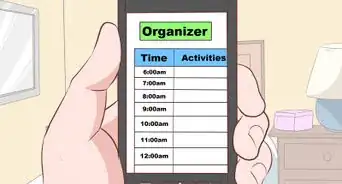This article was co-authored by Annie Lin, MBA. Annie Lin is the founder of New York Life Coaching, a life and career coaching service based in Manhattan. Her holistic approach, combining elements from both Eastern and Western wisdom traditions, has made her a highly sought-after personal coach. Annie’s work has been featured in Elle Magazine, NBC News, New York Magazine, and BBC World News. She holds an MBA degree from Oxford Brookes University. Annie is also the founder of the New York Life Coaching Institute which offers a comprehensive life coach certification program. Learn more: https://newyorklifecoaching.com
There are 7 references cited in this article, which can be found at the bottom of the page.
wikiHow marks an article as reader-approved once it receives enough positive feedback. In this case, several readers have written to tell us that this article was helpful to them, earning it our reader-approved status.
This article has been viewed 174,628 times.
If you’re always rushing around trying to get things done, it might be time for you to better organize your day. Organizing is a fairly personal activity, but it does involve some basics. You’ll want to determine the activities you need to accomplish, create an effective schedule, and work to stay organized. With a bit of effort and time, your routine will become habit and you’ll make your days more efficient and successful.
Steps
Determining Your Activities
-
1Write down what you do. Grab a notebook and a pen that you will carry with you for a few days. Write down any activities you engage in, including work, errands, taking care of yourself, and having fun. Include how often you usually do these actions (daily, weekly, monthly).[1] This may include things like:
- Commuting.
- Working.
- Sleeping.
- Cleaning your house.
- Grooming.
- Shopping for groceries.
-
2Include any aspirations. If there are other things that you’d like to do, but never seem to get around to, include these on your list. As you organize your day, you will figure out how to include these new activities into your routine.[2] These might be things like:
- Working out.
- Prepping healthy meals.
- Playing guitar.
- Hanging out with friends.
Advertisement -
3Determine how long each activity takes. Once you have a list of your activities (including aspirational ones), and how often you complete each task, you must reflect on how long each activity takes. Try your best to be realistic.[3]
- Include the time it takes to get to where you need to be.
- Include the time it takes for you to get ready for each activity.
- Include the time it takes for you to wrap up. If you’ll be working out, for instance, you may need to shower and change when you’re done.
-
4Cut unnecessary activities. There is only so much time in every day. This means you must pick and choose which activities are most useful to you. This life change is two-fold: it will involve breaking some time-wasting habits, and learning to say "no."[4]
- Common time-wasting habits include social media, checking email too often, watching television, and gossiping. When you engage in these types of activities, consider setting a timer for yourself. When the time is up, you must get back to work.
- If your boss, friends, spouse, and family are all asking things of you, it can be hard to keep up! Whenever you are asked to complete a project or do a favor, stop to consider whether or not you truly have the time to do the task well. Sometimes, you will need to say, "I just don't have time for that today."
Making a Plan
-
1Select a planner. Get a planner that will be able to fit in all of the things you need to do. This could be a digital planner (like a Google calendar) or a physical one that you write in. The important thing is for you to be able to keep your planner with you all the time. A planner helps you to stay on track.[5]
-
2Pencil in things that are non-negotiable. Begin organizing your day by writing down tasks that are set. This can include things like work, childcare, school, meetings, or other classes. Remember to include time to get ready for these tasks and to commute.
-
3Fit other tasks into your schedule. Once you have the non-negotiable items written down, you can look for gaps. For instance, you might have a little time before or after work, or on your days off. Begin to fill in any other things you need to do, such as working out, hanging out with friends, or doing errands.[6]
-
4Make your day efficient. In order to maximize your time during the day, keep an eye out for ways to make tasks more efficient. Group similar actions together, or pair errands that occur in close proximity to one another.[7]
- If you work near the grocery store, do your shopping before or after work.
- If you workout as soon as you get up, you only need to shower once.
- Instead of meeting with a friend over coffee, go for a “walking meeting” to get exercise while you talk.
-
5Give yourself a time buffer. Avoid scheduling things too closely together. You never know when a meeting will run a bit long, or when you will hit traffic. As a good rule of thumb, give yourself an extra 15-20 minutes between items on your agenda. It is always better to be early than late![8]
Staying Organized
-
1Use your planner every day. Creating a plan is useless if you don’t follow it. Keep your day planner with you at all times. Anytime a new task presents itself, jot it down in your planner. Make it a habit of regularly checking your planner for deadlines, appointments, and other tasks. Before long, this will be a natural part of your daily routine.
-
2Create a bedtime routine. Doing the same tasks each night before bed will help you stay organized the following day. As an added benefit, a consistent routine can help you to fall asleep! Give yourself 15 minutes to complete a few tasks before bed.[9]
- Choose your clothes for the next day. Check the weather forecast and select appropriate items.
- Arrange the things that you will be using the next day (watch, bag, shoes, socks, makeup, books, accessories, etc.).
- Pack your lunch.
- Look at your planner and see what you need to do the next day. Add any necessary items to your “to-do” list.
-
3Plan the week ahead. In addition to checking in with your planner each day, make it part of your routine to sit down before the start of your week (for many people, this will be Sunday) and formulate a plan for the week ahead.[10]
- Just like before, pencil in any non-negotiable tasks first.
- Then work to schedule all other in the time you have available.
- Look for any deadlines, meetings, or other appointments.
-
4Stay flexible. Despite your meticulously organized schedule, things will not always go according to plan. Meetings can run longer than scheduled, traffic can be worse than you thought, or your kids can get sick. The important thing is to try to be flexible when this happens, and come up with creative solutions.[11]
- Keep healthy snacks (such as raw almonds) in your bag or desk at work in case you have to skip lunch.
- Keep a notebook (or tablet computer) with you so that you can get a little work done while you wait somewhere.
- Find out if there is the possibility of working from home, or video conferencing into a meeting, if you cannot be there in person.
Expert Q&A
Did you know you can get expert answers for this article?
Unlock expert answers by supporting wikiHow
-
QuestionHow do I stop procrastinating in the morning?
 Annie Lin, MBAAnnie Lin is the founder of New York Life Coaching, a life and career coaching service based in Manhattan. Her holistic approach, combining elements from both Eastern and Western wisdom traditions, has made her a highly sought-after personal coach. Annie’s work has been featured in Elle Magazine, NBC News, New York Magazine, and BBC World News. She holds an MBA degree from Oxford Brookes University. Annie is also the founder of the New York Life Coaching Institute which offers a comprehensive life coach certification program. Learn more: https://newyorklifecoaching.com
Annie Lin, MBAAnnie Lin is the founder of New York Life Coaching, a life and career coaching service based in Manhattan. Her holistic approach, combining elements from both Eastern and Western wisdom traditions, has made her a highly sought-after personal coach. Annie’s work has been featured in Elle Magazine, NBC News, New York Magazine, and BBC World News. She holds an MBA degree from Oxford Brookes University. Annie is also the founder of the New York Life Coaching Institute which offers a comprehensive life coach certification program. Learn more: https://newyorklifecoaching.com
Life & Career Coach Most people don't procrastinate because they're lazy, but because they aren't used to doing something. It's really just a lack of practice. You have to break old habits and get used to making the conscious change, no matter how strange or uncomfortable it feels to do so. Practice by doing something small, like opening your planner every morning as soon as you wake up.
Most people don't procrastinate because they're lazy, but because they aren't used to doing something. It's really just a lack of practice. You have to break old habits and get used to making the conscious change, no matter how strange or uncomfortable it feels to do so. Practice by doing something small, like opening your planner every morning as soon as you wake up.
Warnings
- Don't overwhelm yourself with too much stuff. Remember there are only 24 hours in a day, 10 of which might be taken up with sleeping and eating.⧼thumbs_response⧽
- Never write your personal things (passwords, codes, address, etc.) in your planner.⧼thumbs_response⧽
- Even if you have everything taken care of the night before, that doesn't mean you get to sleep in.⧼thumbs_response⧽
Things You'll Need
- Day planner or agenda (or an app)
- Paper
- Pen or pencil
References
- ↑ Annie Lin, MBA. Life & Career Coach. Expert Interview. 25 November 2019.
- ↑ Annie Lin, MBA. Life & Career Coach. Expert Interview. 25 November 2019.
- ↑ https://www.entrepreneur.com/article/251989
- ↑ http://www.payscale.com/career-news/2015/07/5-bad-habits-that-waste-your-day-away-and-what-to-do-about-them
- ↑ http://www.lifehack.org/articles/featured/20-quick-tips-for-better-time-management.html
- ↑ http://www.huffingtonpost.com/daniel-scalco/productivity-tips_b_7608084.html
- ↑ https://www.entrepreneur.com/article/251989
- ↑ https://www.entrepreneur.com/article/251989
- ↑ https://sleep.org/articles/day-in-day-out-the-importance-of-routine-in-our-daily-lives/
- ↑ Annie Lin, MBA. Life & Career Coach. Expert Interview. 25 November 2019.
- ↑ https://zenhabits.net/12-practical-steps-for-learning-to-go-with-the-flow/
About This Article
To organize your day, start by writing down everything you want and need to do that day. Then, estimate how long each activity will take you and cut any activities that you don't have time for. Next, come up with a schedule for the day, starting with the things that are non-negotiable, like work, school, or meetings, and fitting in the rest of your activities after that. To save yourself time and make your day more efficient, schedule similar tasks or errands that are in close proximity so they're back-to-back. To learn how to stay organized and stick to your schedule, scroll down!
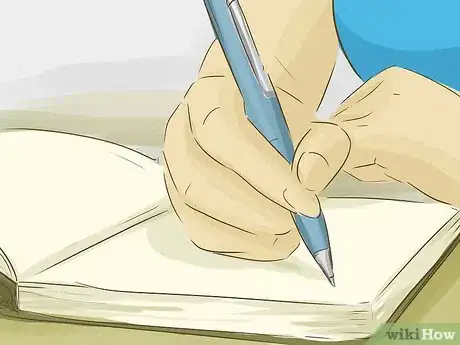

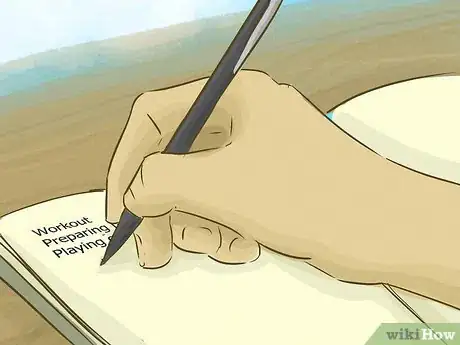

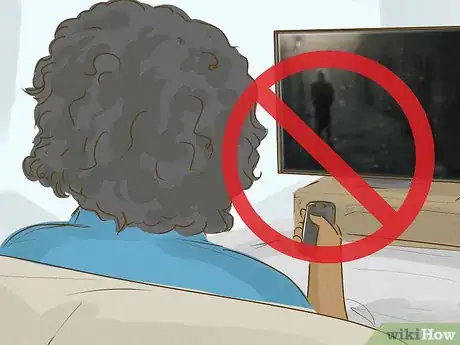
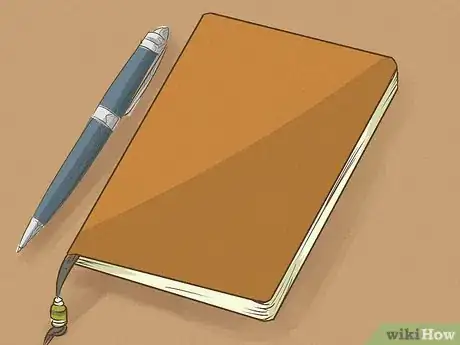
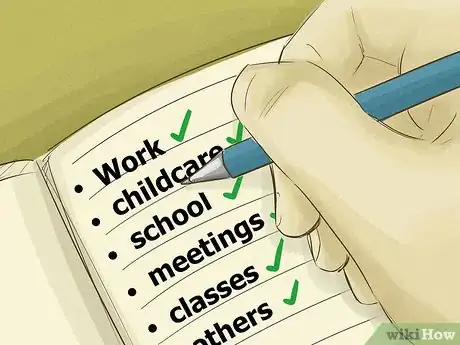
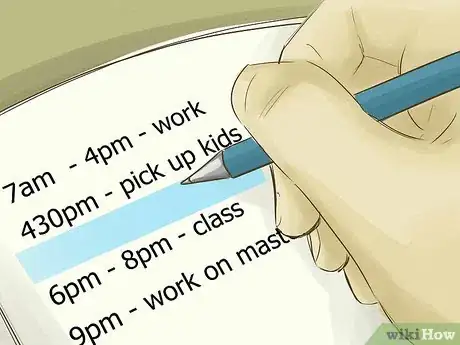




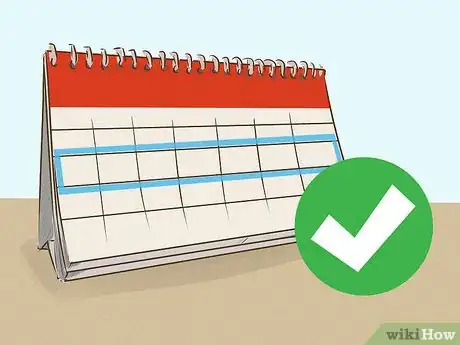





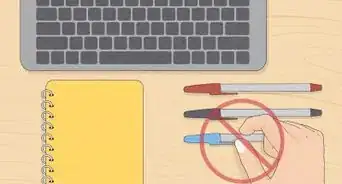

-Step-15.webp)





